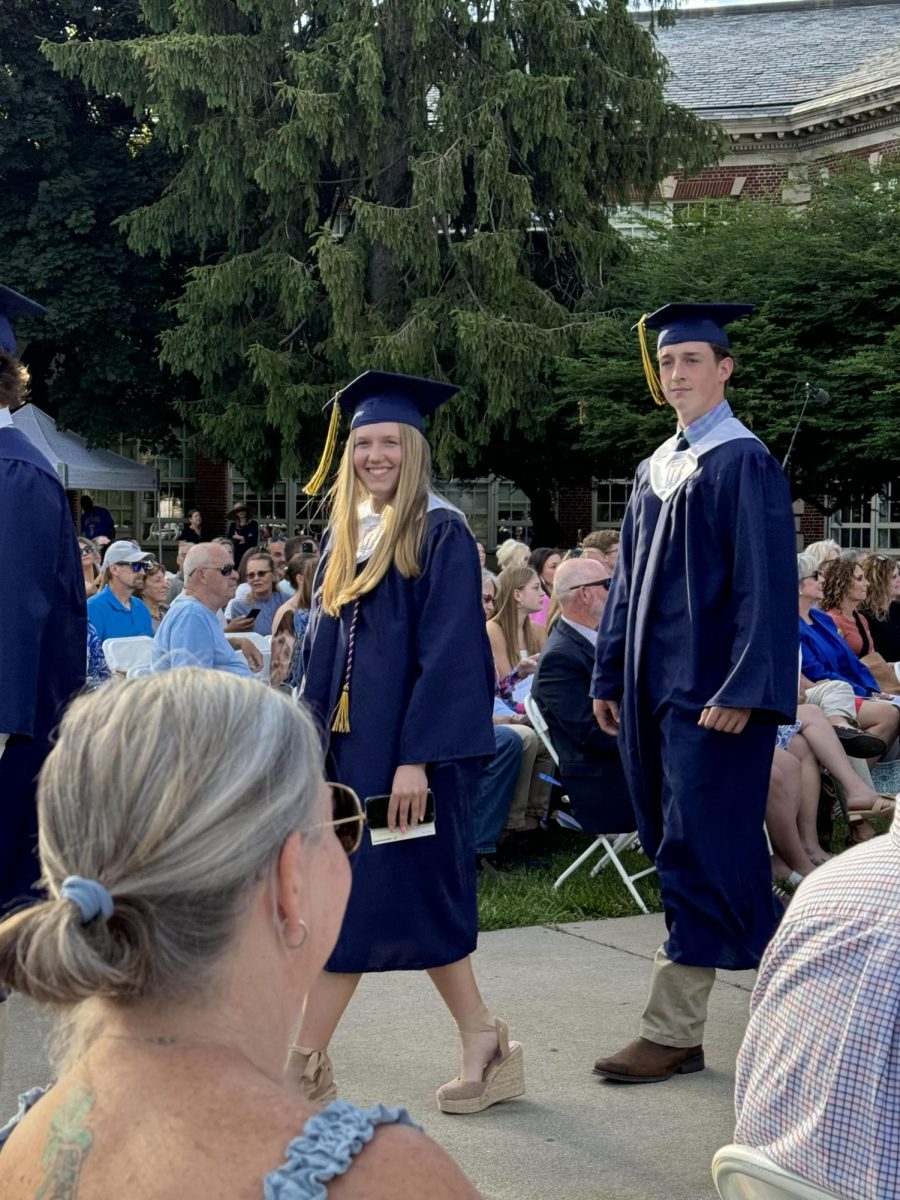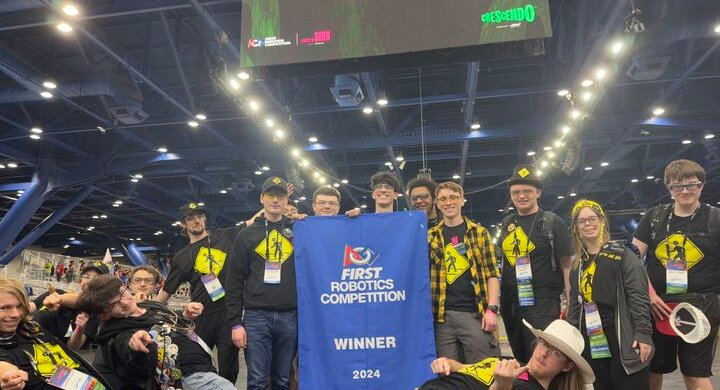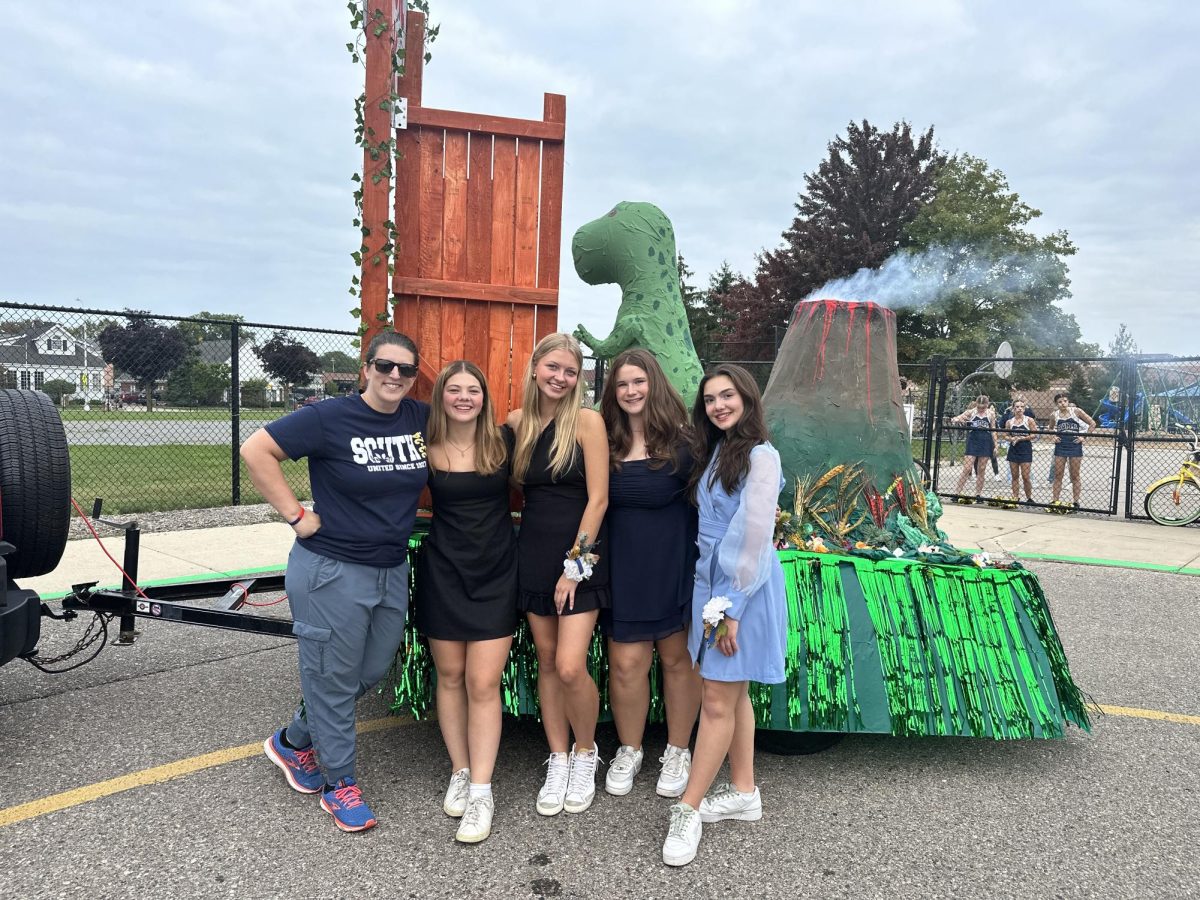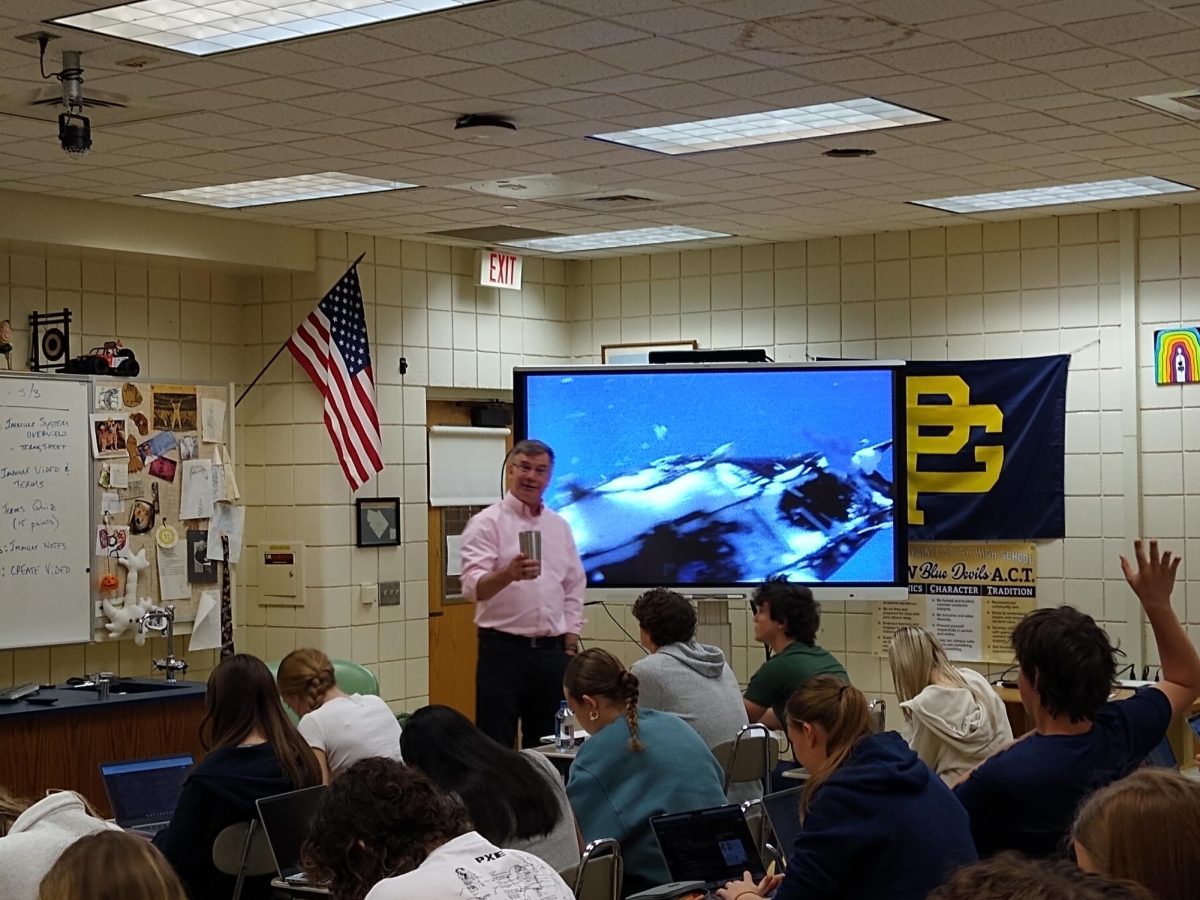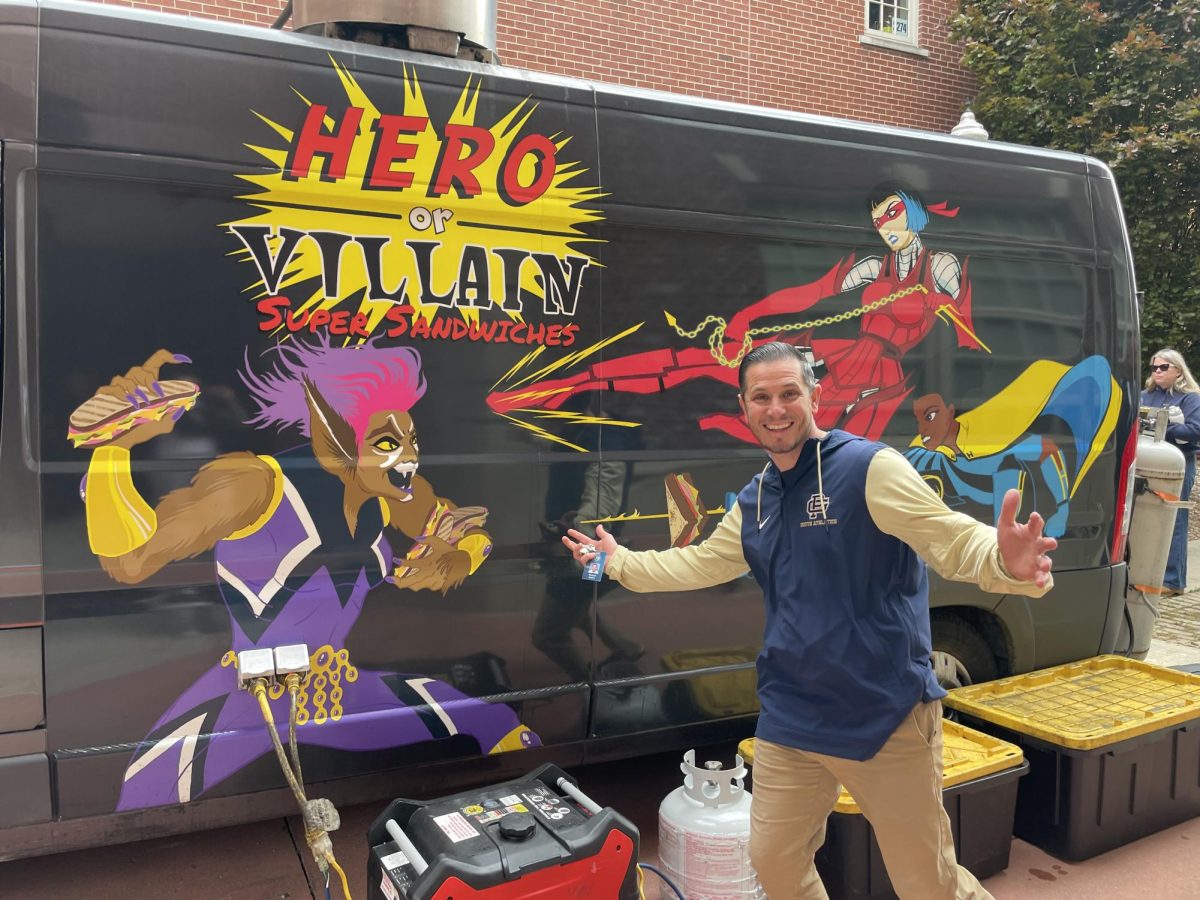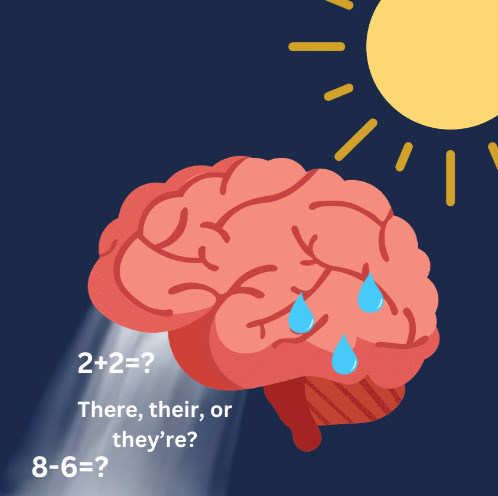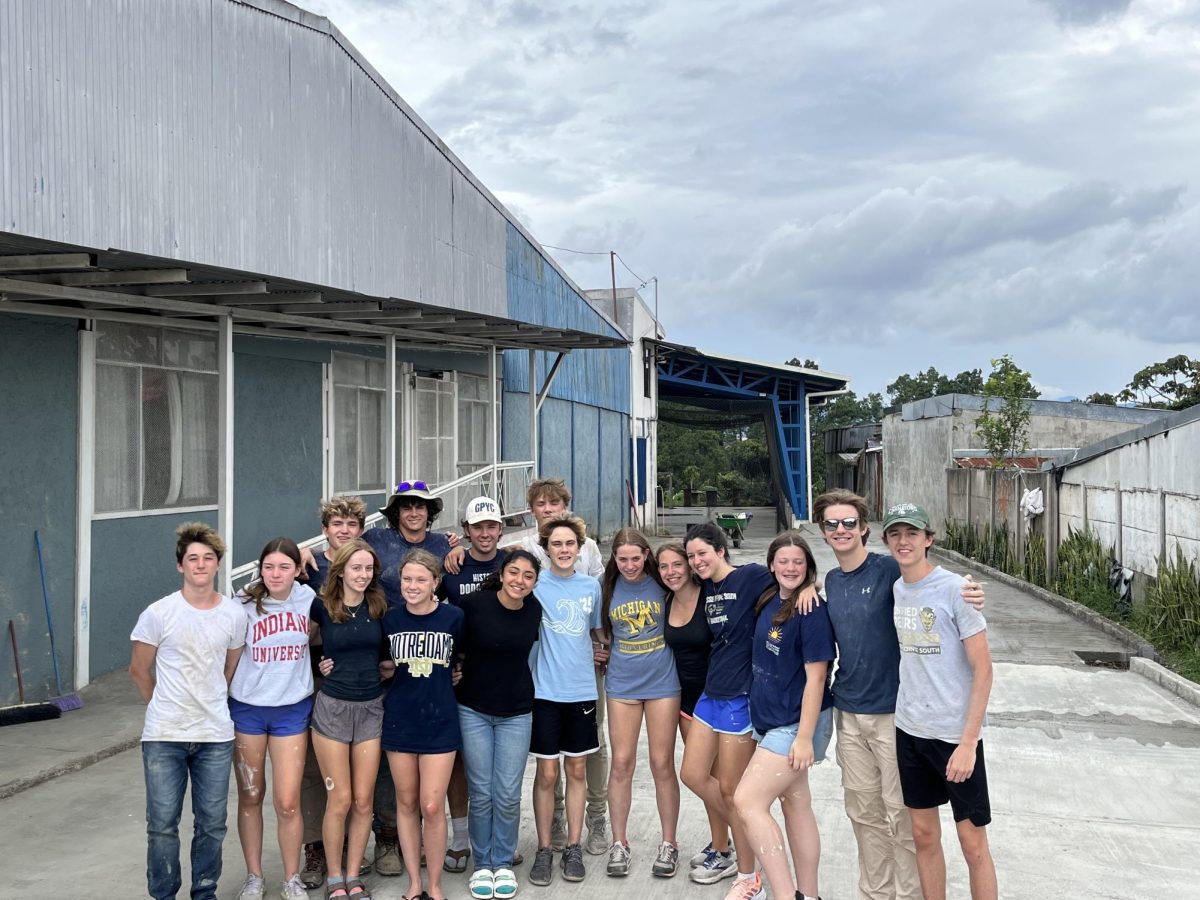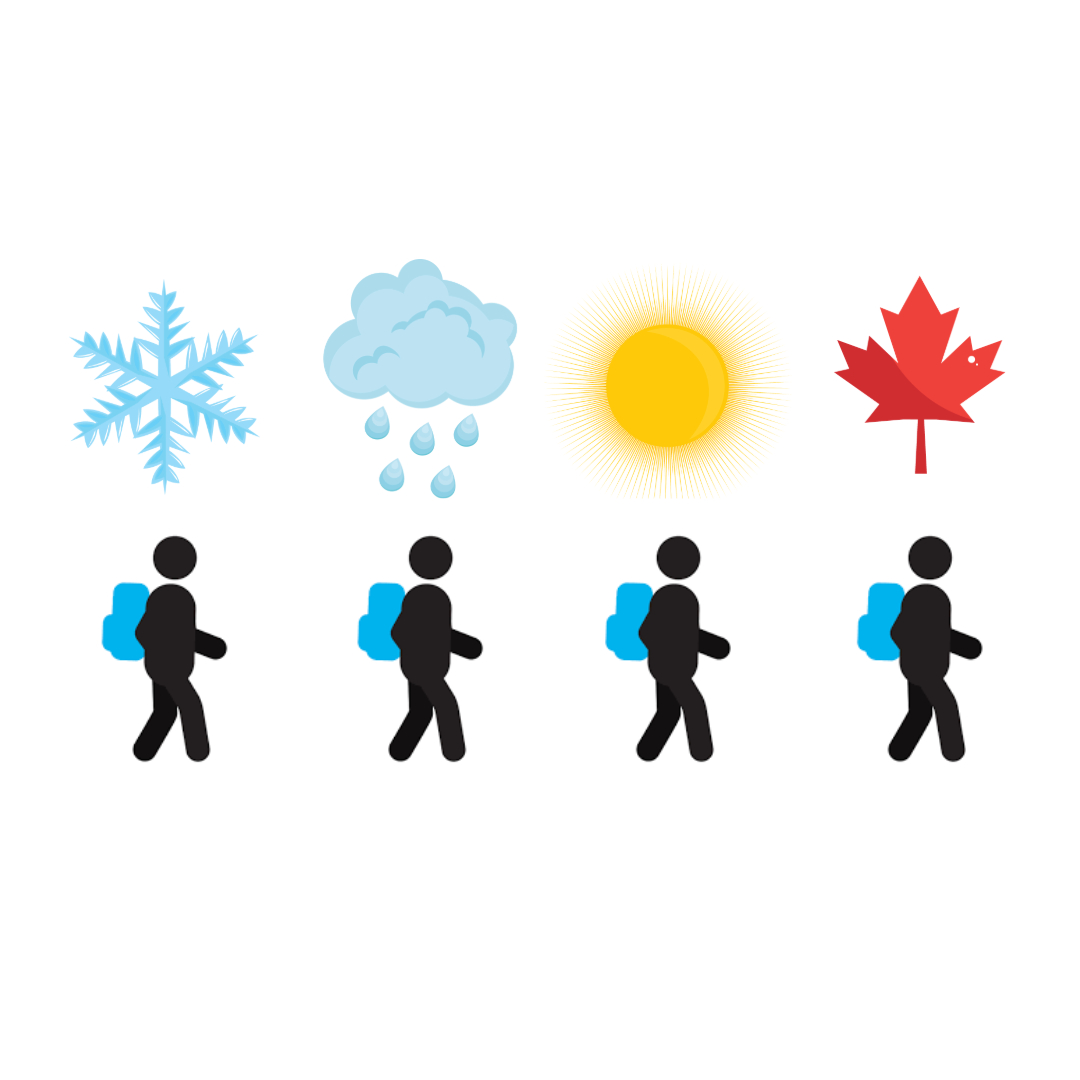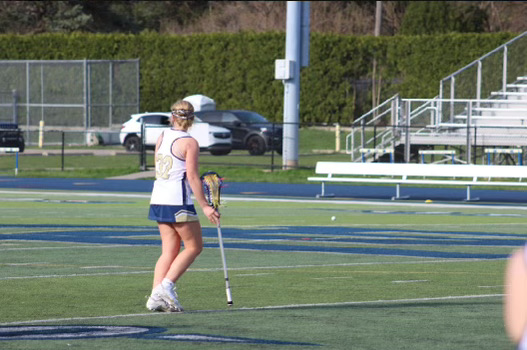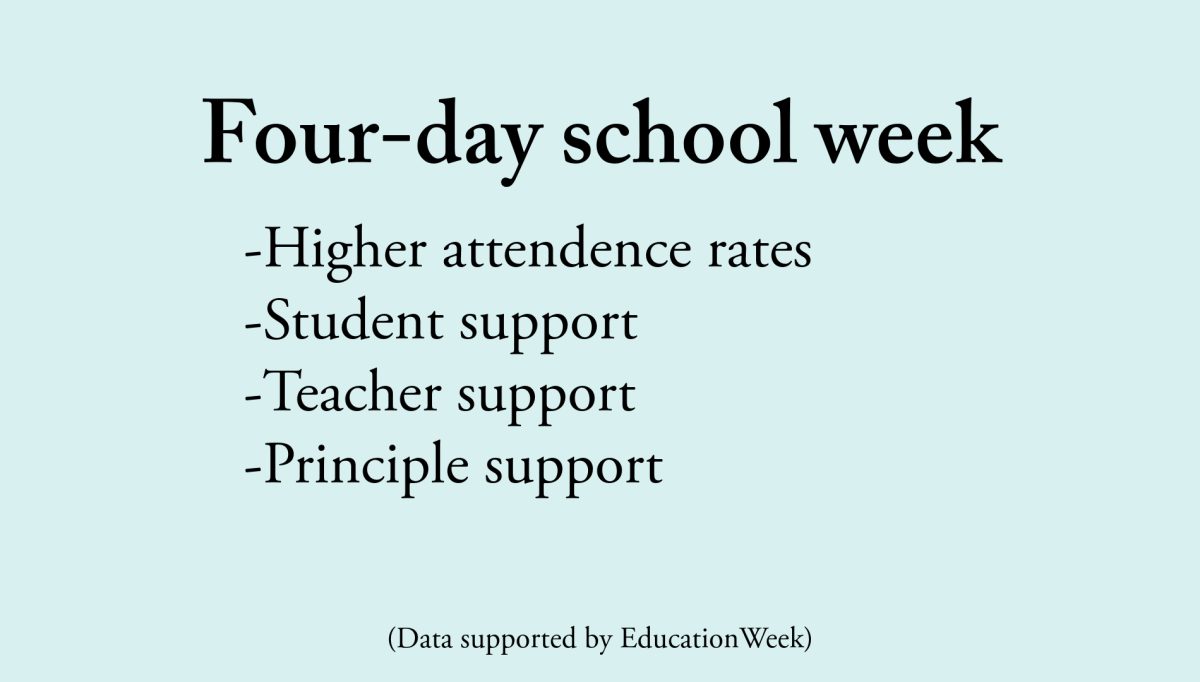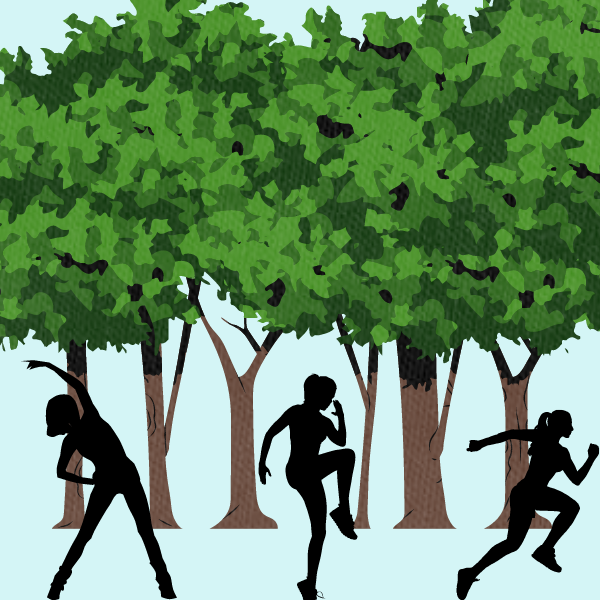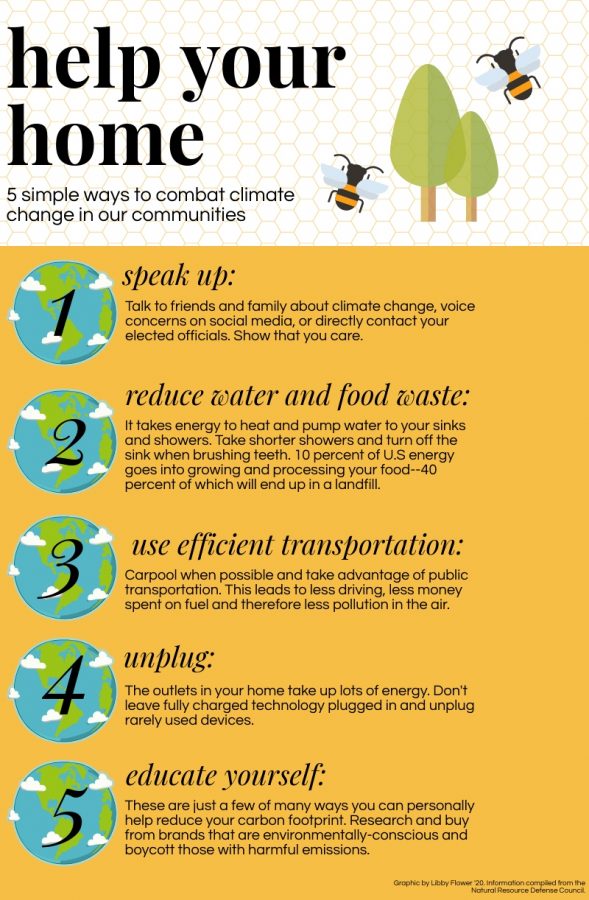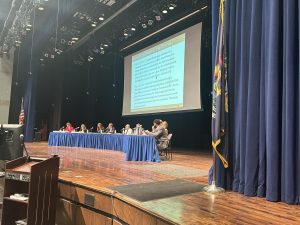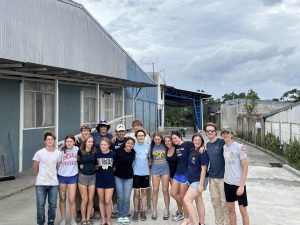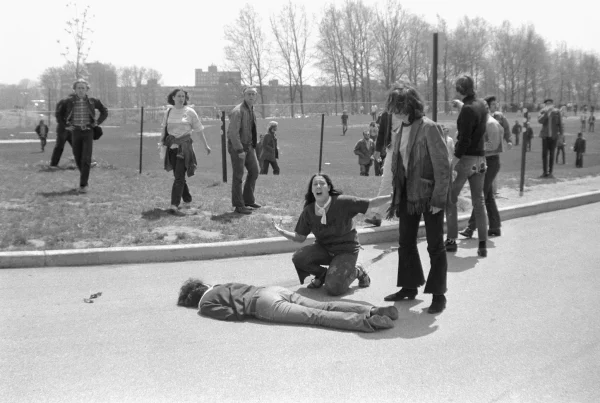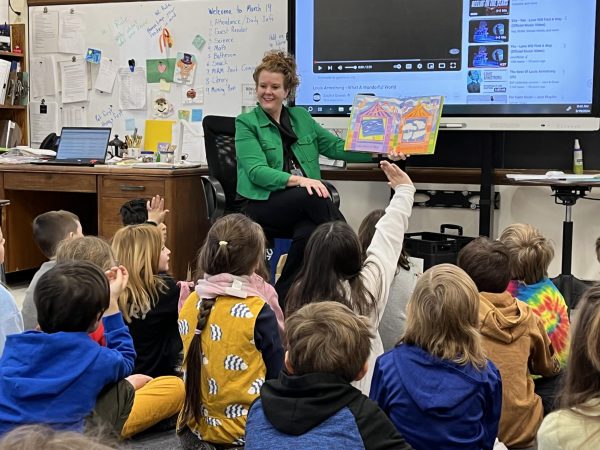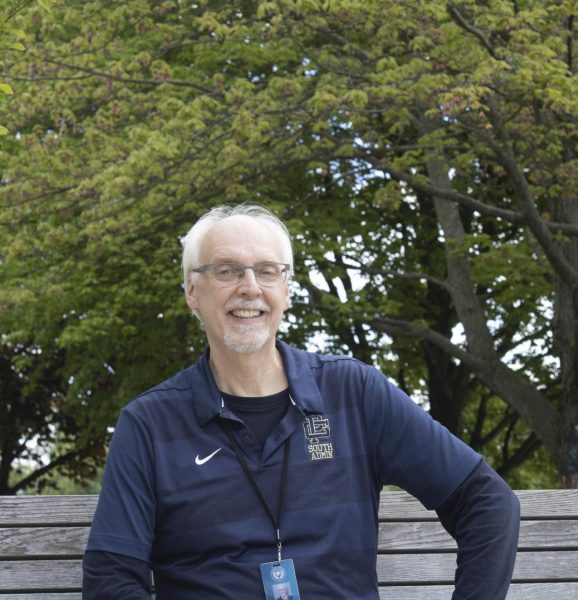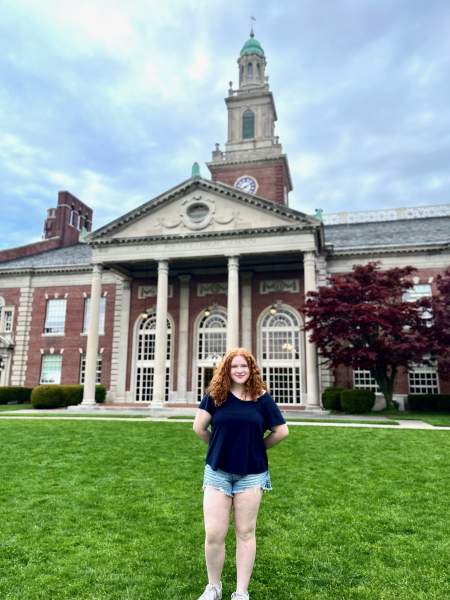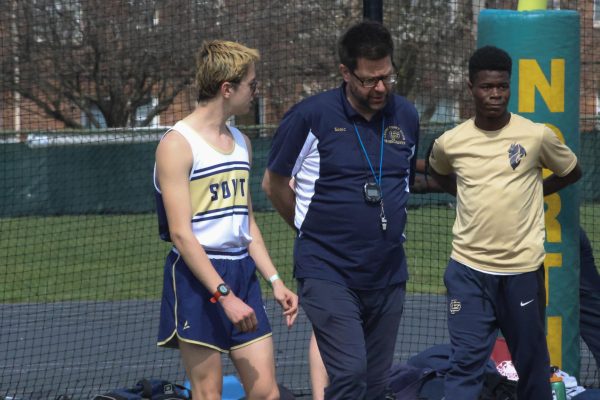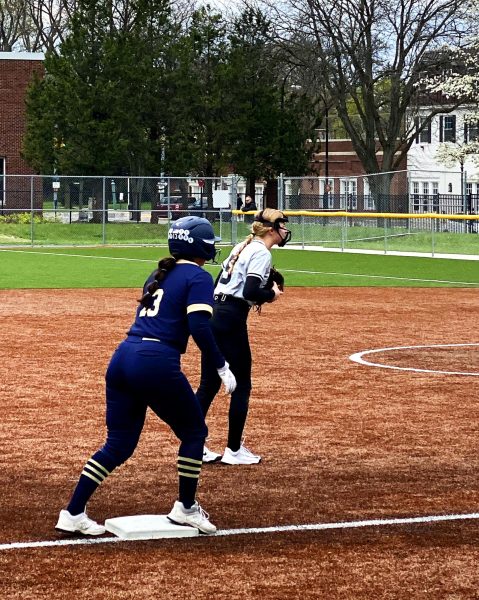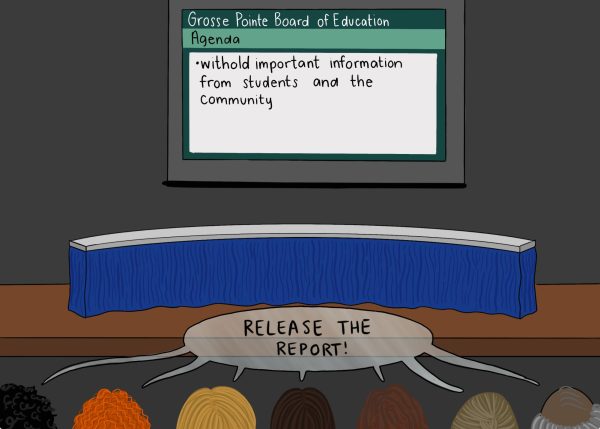The wrath of climate change
Exploring its current effects and where our environment is headed
April 4, 2019
In 50 to 60 years, the world we live in could be entirely different because of climate change. Lisa Bouda, long-time earth science teacher, at South, highly stressed this, emphasizing the importance of immediate action.
“If we don’t start doing something about it now, there’s no chance to turn it back,” Bouda implored.
According to Bouda, there is no denying climate change is happening. All the snow days the school district has had this past winter point towards global warming.
“That (snow days) is actually because the Arctic in the northern hemisphere got warmer and pulled the snow days down to us instead of Canada, which I didn’t even know was possible,” Bouda said. “That’s all apart of climate change. I think we will see extremes (in the weather).”
Shawn McNamara, South’s AP Environmental Science teacher, believes the emissions of big corporations have played a significant role in raising Earth’s temperature, but, collectively, everyone is responsible for the effects of climate change.
“Communities working together could definitely be helpful,” McNamara said. “One of the easiest things to do would be establishing non-motorized pathways.”
McNamara said eco-friendly changes like these wouldn’t be hard to instill in the Grosse Pointe or Detroit area.
“Detroit has a lot of bike lanes, just in the last couple years they have included more,” McNamara said. “We could encourage more carpooling or alternative transportation than just cars. (Grosse Pointe) is a small community, so it’s very bikeable or walkable for the most part.”
Bouda believes education and awareness is key when it comes to climate change, so she begins educating others in her classroom.
“There’s a lot of misnomers out there, a lot of it is coming from politics, so I try to lay the facts out,” Bouda said. “I try to introduce the facts to them and let them make their own conclusions about what evidence is there.”
Co-president of South’s Save the Lake Club Bridget Clark ’22 said their main focus is lowering Grosse Pointe’s carbon footprint by reducing plastic and litter in the community.
“We’ve passed out a total of 800 metal straws for free, and that’s because single use straws are very bad for the environment because they are non-recyclable,” Clark said. “We have raised money to raffle off a yeti and that is also helpful because plastic water bottles take years to decompose.”
Julia Hudson ’20, another co-president of Save the Lake, said the club has also been aiming to educate others about the environment.
“On Instagram we recently posted about substitutes you can use for plastic items, especially plastic single use items,” Hudson said. “Little things like that are making a difference and educating people about it is helping.”
Clark said the club plans on doing a beach cleanup within the next few months and are working on building bins to put in the parks for fisherman so they can dispose of their extra fishing line properly.
“That leads to less plastic in the lake and less plastic in the ocean,” Clark said. “Especially because the fishing line is a microfilament so it is hard to pick back up out of the lake because it sinks and is very small and clear, so this is helping the problem at the source.”
However, Bouda believes major industries using fossil fuels contribute more to climate change than individuals. She thinks fossil fuels specifically are the number one contributor to the climate change affecting Earth.
“I’m worried because there’s only so much citizens can do and factories and power plants have to and power plants have to really kick it in,” Bouda said. “I’ve heard DTE say they are never going to build another coal burning power plant, so that’s good to hear.”
Bouda said Michigan uses some renewable energy methods, such as wind energy, but it’s still mostly the use of fossil fuels in industries that are harming the environment. She said a lot of the auto companies are working on more fuel efficient cars and autonomous cars, but she still doesn’t see society moving away from fossil fuel cars.
“I haven’t seen anything like that, even with electric cars, because we’re still burning fossil fuels even though it would probably be less,” Bouda said.
In the current political environment, Bouda doesn’t see federal funds being put toward combating climate change.
“That’s why I’m worried,” Bouda said. “People are concerned about it, but it’s not really happening. I mean, all those incentives we used to get on our taxes, like to use solar panels, they are all gone, so that’s concerning.”
McNamara said the government must play a role in fighting the effects of climate change.
“Environmental policy is not just based on scientific research,” McNamara said. “The scientists are the ones who help identify some of the problems and solutions, but it’s a collective process which means it requires cooperation from the citizens and the governments.”
McNamara cited the current federal administration as a government that is less environmentally aware and more economically inclined, which isn’t helpful to those advocating for legislation to protect it.
“Every new administration brings their own take on environmental problems,” McNamara said. “Economics and environment often go head to head, they don’t have to, but in this case it looks like they are.”
According to Bouda, Michigan will see the wrath of climate change through the local economy.
“I think the food resources are going to be affected, and the economy is going to be affected,” Bouda said. “Prices and fuels are going to go up.”
McNamara thinks climate change will slowly affect Michigan’s environment.
“We’ve noticed temperature changes within the last 15 years that are trending higher, but the result won’t be seen until potentially we’re past the tipping point,” McNamara said.
Bouda said it will be warmer in Michigan which might not be so bad, but weather could be more extreme especially when dealing with rain events.
“So more thunderstorms, more tornados because there’s more evaporation, that’s where I think it would be more severe,” Bouda said. “We would still have our seasons, we had a pretty normal winter this year, so we will have those.”
Bouda said the general trend will be hotter weather. According to a report done by Climate Central, nine of the past ten hottest years on record were in the 21st century.
“The last five years have been the hottest years ever on record, so there’s definitely a trend there,” Bouda said. “Getting a global temperature is not easy because that’s a lot of averages, so it’s tricky, weather’s hard enough to predict day to day, let alone climate a hundred years from now.”
Bouda said, from what she’s seeing, that climate change could be a drastic change for future generations.
“I don’t think it’s going to be the end of the world, but it’s going to definitely be different,” Bouda said. “We have to able to adjust to those changes and we don’t even know what some of those changes are yet.
McNamara argues our mindset will be the biggest aid to climate change and will hold us in the dark.
“It would be generations before something happens,” McNamara. “That’s what makes it so hard to understand. It’s not immediate. We all live in this instant gratification society where if it doesn’t happen today or this week, it doesn’t exist right? What exists is right in front of us.”

